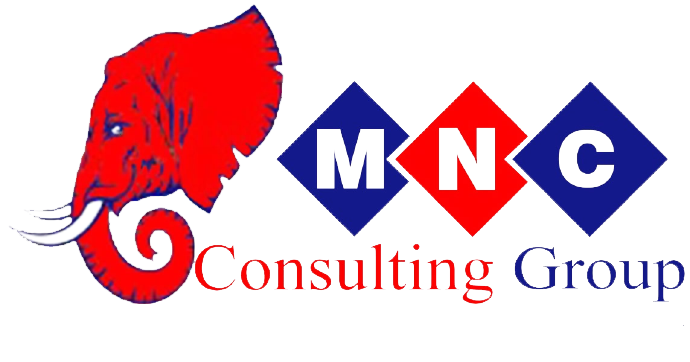
Mastering Recruitment and Onboarding
- Uncategorized
- March 9, 2024
- No Comments
- James ndambiri
In the modern business landscape, where talent competition is fierce, mastering recruitment and onboarding processes is paramount for organizational success. This article explores in-depth strategies and best practices that companies can employ to navigate the dynamic world of talent acquisition and integration, ensuring they stand out in a crowded field.
Navigating the Recruitment Landscape
To effectively attract top talent, organizations must go beyond traditional recruitment methods. Leveraging targeted channels such as niche job boards, industry-specific forums, and social media platforms tailored to professionals can yield more qualified candidates. By strategically positioning job postings and engaging with potential hires where they actively participate, companies increase their visibility and attract candidates who possess the desired skills and qualifications.
Embracing Data-Driven Recruitment
In the age of big data, leveraging analytics can revolutionize recruitment strategies. Organizations can identify patterns and trends by analyzing past recruitment data, enabling them to refine their approach and allocate resources more effectively. Utilizing applicant tracking systems (ATS) and predictive analytics tools streamlines the hiring process, allowing recruiters to make data-driven decisions and optimize their recruitment efforts for better results.
Cultivating Talent Pipelines
Building and nurturing talent pipelines is essential for maintaining a steady stream of qualified candidates. Organizations can establish relationships and keep top talent on their radar by proactively engaging with potential candidates, even before job openings arise. Networking events, industry conferences, and alumni associations are valuable platforms for connecting with passive candidates and cultivating long-term relationships that may lead to future hires.
Emphasizing Employer Branding: Crafting a Compelling Narrative
Defining Organizational Identity
A strong employer brand begins with clearly understanding the organization’s identity and values. Companies must articulate their mission, vision, and culture in a compelling manner that resonates with potential candidates. This involves highlighting unique selling points, such as career advancement opportunities, work-life balance initiatives, and company culture, to attract candidates that align with the organization’s ethos.
Showcasing Employee Testimonials
Authenticity is critical to building trust with prospective candidates. Sharing life experiences and testimonials from current employees provides valuable insights into the company’s culture and work environment. Video testimonials, employee spotlight features, and social media posts showcasing employee achievements humanize the recruitment process and offer a glimpse into what it’s like to work for the organization.
Engaging in Thought Leadership
Establishing thought leadership within the industry enhances the organization’s credibility and attracts top talent. Companies position themselves as experts by contributing to industry publications, participating in speaking engagements, and hosting webinars or workshops. This attracts candidates seeking professional growth opportunities and reinforces the organization’s reputation as an employer of choice.
Fostering Engagement and Long-Term Success
Designing Personalized Onboarding Programs
One-size-fits-all onboarding approaches often need to be revised to engage new hires effectively. Personalizing the onboarding experience based on the individual’s role, background, and learning style ensures a smoother organizational transition. Tailored training modules, mentorship programs, and on-the-job shadowing experiences provide new hires with the tools and support they need to succeed from day one.
Prioritizing Cultural Integration
Beyond the formalities of paperwork and training, onboarding serves as an opportunity to immerse new hires in the organization’s culture. Incorporating cultural orientation sessions, team-building activities, and introductions to key stakeholders fosters a sense of belonging and commitment among new employees. By instilling cultural values and norms early on, organizations set the stage for long-term engagement and alignment with company goals.
Measuring Onboarding Effectiveness
Continuous evaluation is essential to refining and improving the onboarding process over time. Gathering feedback from new hires, managers, and critical stakeholders provides valuable insights into areas of strength and improvement. Utilizing surveys, performance metrics, and retention rates helps organizations gauge the effectiveness of their onboarding programs and make necessary adjustments to enhance the overall experience.
Equipping Businesses for Success: Practical Insights and Actionable Tips
Staying Agile and Adaptive
In a rapidly evolving job market, agility is vital to staying ahead of the curve. Organizations must remain adaptable and responsive to changing trends and dynamics in recruitment and onboarding. This may involve embracing emerging technologies, adjusting hiring criteria, or reevaluating traditional practices to meet the evolving needs of candidates and employees.
Investing in Employee Development
Onboarding is just the beginning of the employee journey. Organizations must prioritize ongoing learning and development initiatives to foster long-term success and retention. Providing opportunities for skills enhancement, career advancement, and mentorship cultivates a culture of continuous growth and empowers employees to reach their full potential within the organization.
Cultivating a Positive Employer Brand
A positive employer brand is invaluable in attracting and retaining top talent. Organizations must actively manage their reputation through consistent communication, transparent policies, and employee-centric initiatives. By fostering a positive work environment in which employees feel valued and supported, organizations attract top talent and inspire loyalty and commitment among their workforce.
Conclusion
In conclusion, effective recruitment and onboarding strategies are important for thriving in a competitive job market. By embracing innovative techniques, emphasizing employer branding, and prioritizing engagement throughout onboarding, organizations can attract, retain, and empower top talent to drive sustainable growth and success in the ever-evolving business landscape.
